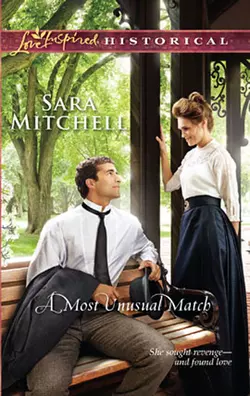A Most Unusual Match

Sara Mitchell
Тип: электронная книга
Жанр: Современная зарубежная литература
Язык: на английском языке
Стоимость: 458.46 ₽
Статус: В продаже
Издательство: HarperCollins
Дата публикации: 16.04.2024
Отзывы: Пока нет Добавить отзыв
О книге: Indulge your fantasies of delicious Regency Rakes, fierce Viking warriors and rugged Highlanders. Be swept away into a world of intense passion, lavish settings and romance that burns brightly through the centuriesOne of the earliest fiction authors in the inspirational market, Sara Mitchell is the critically acclaimed author of fifteen novels.Her 2001 historical Shenandoah Home earned a Romantic Times Top Pick rating; the sequel, Virginia Autumn, was a 2003 Christy Award finalist and winner of the RWA Georgia′s Maggie Award of Excellence in the historical category; and her Love Inspired Historical Legacy of Secrets won the 2008 RT Reviewers′ Choice Award in the Love Inspired Historical category.From inspirational romance, to historical fiction, to complex historical suspense, Sara Mitchell′s books have touched the lives of readers all over the world. Her hallmark traits include exhaustive research, a command of language and characters with emotional depth. She currently writes for Steeple Hill′s Love Inspired Historical line, creating stories that take place in the late 1890s.In all her works, Sara infuses the same passion and faith with which she tries to live life. It remains her hope that «. . . God′s grace enables my books to touch hearts and honor Him. Along with,» she adds with a smile, «providing a few hours of happily-ever-aftering.»When she′s not writing and making a mess of her office Sara enjoys rummaging around cluttered antique shops, researching historical photos, shopping for bargains in any kind of store that is NOT crowded and playing her 1870s rosewood Steinway piano. She gave up on sewing, knitting, crocheting, scrapbooking and regular exercise. She has learned, however, to embrace gardening on a small scale, unless she encounters grubs or slugs. Earthworms are fine.She and her husband of 39 years live in Virginia. They are the parents of two adult daughters. Sara loves to hear from readers, and you may reach her through Web site.